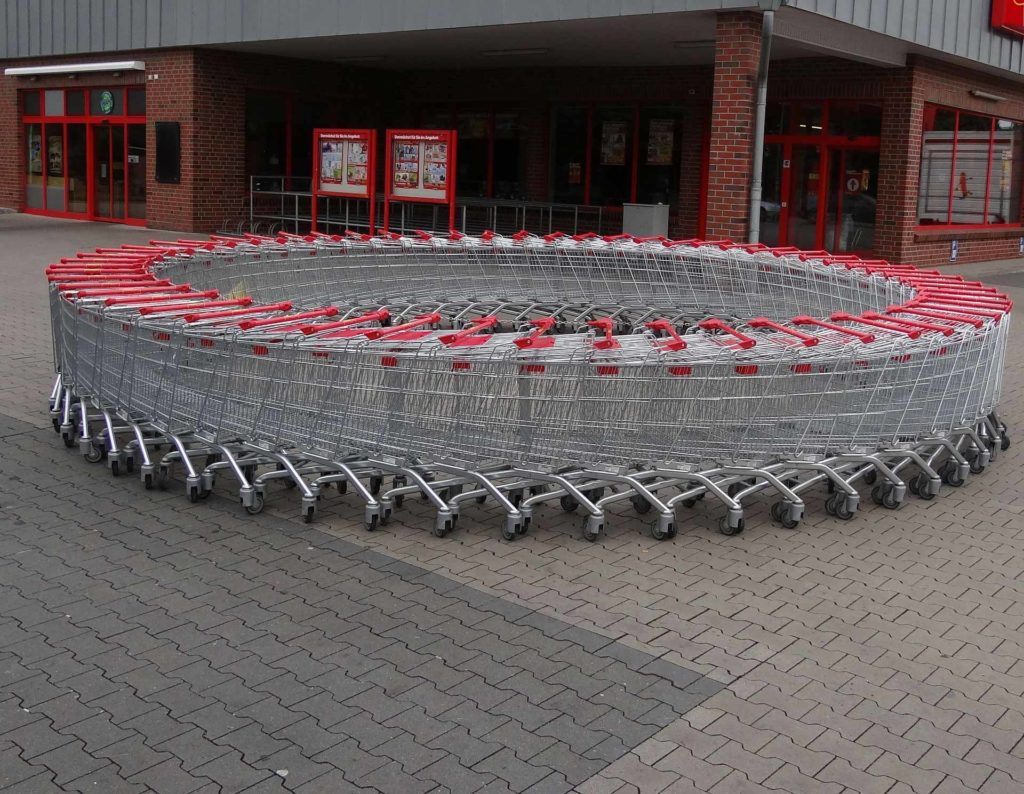
A glimpse of what’s to come? Image via: Beeki on Pixabay
Artificial intelligence (AI) should take on the mundane stuff in addition to the hard stuff. That’s a point Manuela Veloso drove home at MIT’s EmTech Next Conference. I love this line:
“Every time I enter a supermarket and I push this cart, I say, ‘Why can’t this cart follow me?’ These carts should all be automated.”
She’s right. Why can’t that cart follow me around? And why can’t it return itself to the drop-off area in the parking lot? That’s the kind of self-driving vehicle we really need.
And while we’re at it, why can’t AI improve other daily activities?
Microwaves – Identify the food, the temperature, and the elevation, then cook the food with the optimum temperature and duration. Don’t make me press a button marked “High” to cook my food. What’s the scientific definition of “High,” anyway?
Washer / Dryer – Weigh the load of laundry and evaluate the color and texture of the clothes. Tell me exactly how much detergent should be added (for the washer), and then wash and dry the load with the minimum amount of water and heat needed to complete the job. If you want to get really fancy, adapt the wash / dry cycle based off of the recommended care guidelines from the clothing manufacturers (thereby making tags useful for the very first time).
Air conditioner – Evaluate the size of the room, how it’s positioned toward the sun, the number of living creatures in the room, then activate for the time and temperature needed to cool the room down. Also, use local weather forecasts to anticipate cooling.
Car – Make recommendations on oil changes and other service based off of the specific habits of the car’s drivers. My auto maintenance decisions shouldn’t be guided by a sticker in the upper-left corner of my windshield.
Shopping – I might (might) give you access to my precious data if you automatically alert me when products I often purchase are on sale. Don’t make me hand-select each product and add it to your platform. You do the work for me and I’ll think about using your service.
Self-care – Give me a better way to:
- Apply sunscreen based off of the intensity of the sun on that specific day.
- Know when it’s time to get a new pair of running shoes.
- Monitor my exercise regime and give me tips for improving.
- Measure the nutritional details of the food that’s on my plate.
- Measure and monitor my stress levels, and help me identify my stress triggers.
Knowledge – Help me easily answer questions like:
- What kind of bird is making that noise?
- Is that poison ivy?
- What bit me?
- Can I recycle this?
TV apps – Stop making me sign in to my cable provider from TV apps. And once I do sign in, NEVER ASK ME TO DO IT AGAIN. (I’m not sure how this item applies to AI, but this nuisance must be eradicated.)
Impactful, not boring
Some of this list is tongue-in-cheek. But not entirely. All of these small and normal things could be improved by the thoughtful application of technology.
The point here is that AI’s potential extends to both the bleeding edge and the boring edge. And if you’re an AI expert looking to make a tangible difference in day-to-day lives, that boring edge isn’t so boring after all.